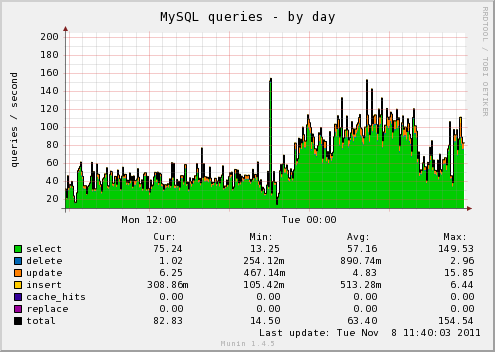Limiting disk iops on a larger Munin server using rrdcached
I've long used Munin for basic resource monitoring on a huge variety of servers. It's simple, reliable, easy to configure, and besides the fact that it uses Perl for plugins, there's not much against it!
Last week, I got a notice from my 'low end box' VPS provider that my Munin server—which is aggregating data from about 50 other servers—had high IOPS and would be shut down if I didn't get it back into an allowed threshold. Most low end VPSes run things like static HTML websites, so disk IO is very low on average. I checked my Munin instance, and sure enough, it was constantly churning through around 50 iops. For a low end server, this can cause high iowait for other tenants of the same server, so I can understand why hosting providers don't want applications on their shared servers doing a lot of constant disk I/O.
Using iotop, I could see the munin-update processes were spending a lot of time writing to disk. And munin's own diskstats_iops plugin showed the same:
